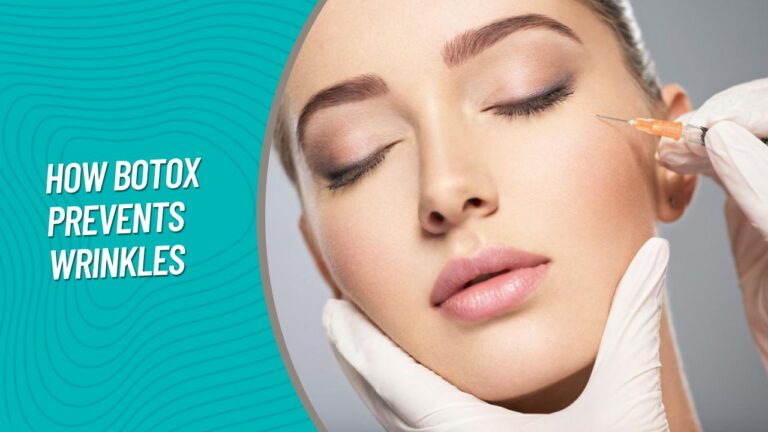According to research, cosmetic use of botulinum toxin is considered safe. With a certified plastic surgeon or dermatologist, the risk levels fall below 1 percent. Botox injections are made out of clostridium botulinum, which causes food poisoning. Thus, it is understandable that people would consider it toxic to the human body.
However, the botulinum toxin type used by plastic surgeons is approved by the food and drug administration as a treatment for conditions like facial wrinkles and excessive sweating. Plastic surgeons administer botulinum toxin in small and diluted quantities. The dosage does not pose any threat to the human body. Read on to find out how safe botulinum toxin is for your body.
Safety History
Between 1989 and 2003, only 36 cases of adverse effects associated with botulinum toxin were reported. Of the 36,13 patients had other medical conditions that may have contributed to the impact. While every cosmetic procedure has risks, botulinum toxin injections have a very safe record.
The toxin may disperse from the injection site to cause botulism symptoms. There were concerns that the toxin may cause muscle weakness and breathing problems. A Wisconsin study set out to investigate this and found that even though botulinum toxin may travel among connected neurons, it’s unlikely to cause complications. Botox only spreads about 3cm from the area of injection.
How far it spreads depends on factors like the amount of dosage. The botulinum toxin is still harmless if some molecules reach the bloodstream or other distant areas. It is because the botulinum cosmetic doses are ideally less than 100 units. It is significantly lower than what’s considered dangerous; 2500-3,000 units. Botulinum toxin is only poisonous in higher doses. Given the events associated with the therapeutic use of botox, the benefits far outweigh the risks.
Book A Consultation With Dr Tarek Bayazid
Top-rated Plastic Surgeon For Botox in Dubai
Installment Plan Available
What Happens to Your Body During a Botox Injection?
Before a botulinum toxin injection procedure, you should inform your doctor of any underlying conditions. They’ll need to know if you’re on any sleeping pills, muscle relaxers, or allergy medication so that they can anticipate any toxic effects. Your body does not experience any significant discomfort during the procedure. The doctor may numb the treatment areas before the process to reduce pain.
Botulinum injections are simple procedures that could take place in your doctor’s office. The toxin comes in powder form; doctors use saline to dilute it and make it injectable. This stage is critical in reducing Botox’s toxin effects on the body.
Your doctor then starts injecting small amounts of botox using a thin needle. Plastic surgeons decide how many injections you need, depending on the size of the area requiring treatment. The injection travels from the dermis to the targeted muscle. It blocks the nerves in that area, which stops the muscle from moving.
Any residual swelling that may occur should go down within no time. It’s less likely that you’ll experience bruising, especially if your doctor has the right experience. Bruising occurs when the injection of botulinum toxin hits a blood vessel. With the proper technique, this is less likely to happen.
After the procedure, doctors recommend avoiding rubbing the injected areas, as it may cause the toxin to spread. You should only start working out after 24 hours, as physical activity may spread the toxin to other areas.
What are the Side-effects?
After a treatment, you could expect the following effects of botox :
- Changes in the targeted areas
You may experience bruising, change in skin color, and pain in the injected area. This reaction will appear right after therapy and disappear on its own. To ease bruising, you can apply ice packs after the injection. Though rare, there’s a bacterial infection risk if your doctor doesn’t clean the targeted area well during prep time.
Botox could cause muscle spasms in the target areas before numbing the muscles. This side effect is not a cause for alarm and usually subsides after a few days. If you experience too much discomfort, you could use medication like ibuprofen and naproxen.
- Eye Problems
After a treatment, you might blink less as the toxin affects your eyelid muscles. It could cause eye irritation, dryness, or eye damage. You could also experience difficulty perceiving distance or double vision. If you experience any of these side effects, visit an eye specialist immediately. Waiting could exacerbate the situation.
- Problems with breathing or swallowing
Botulinum injections could incapacitate muscles that help you breathe or swallow. It’s improbable that you’ll experience this. However, if you do, get to the nearest emergency room fast.
- Heart Issues
Though it’s rare, botulinum neurotoxin could affect how your heart functions. It could cause issues with heart rhythm or heart attacks. You are more likely to experience heart problems if you have pre-existing issues. Discussing your condition with your doctor before the procedure is best to prevent this
Do Botox injections have Long-term Effects?
The side effects discussed above are primarily temporary. Change it to ‘You can suffer long-lasting effects if you get injections frequently. Your facial expressions might change, and you might find that you can’t make certain onesTo reduce the chances of severe side effects, ensure your doctor can administer botox injections. Your doctor needs to be a board-certified plastic surgeon or dermatologist. Avoid unlicensed clinics that do not show a record of results from previous patients.
When to Contact your Doctor
When you develop serious problems such as difficulty talking, swallowing food, or speaking, it’s time to get medical assistance. Such issues put you at significant risk of choking or even death. It can also be a sign of botulism, a life-threatening condition. Stay vigilant about the side effects, especially in the first week. Check in to the emergency room if you experience any of the following symptoms:
- Neck weakness
- Blurred vision
- Nausea
- Edema
- Breathing problems
- Speaking problems
- General weakness
- Hoarseness
- Chewing problems
- Rapid heart rate
- Drooping eyelids
As you can see from the above discussion, you do not need to worry about toxicity from botox injections. Unless you are working with an uncertified Botox provider, you will not experience any alarming side effects.
Get the Best Botox Treatment
Dr Tarek, a licensed plastic surgeon, will offer safe botox treatments that meet your goals. He will walk with you throughout the process to ensure you do not experience any toxic effects. Call today to schedule your botox consultation.





